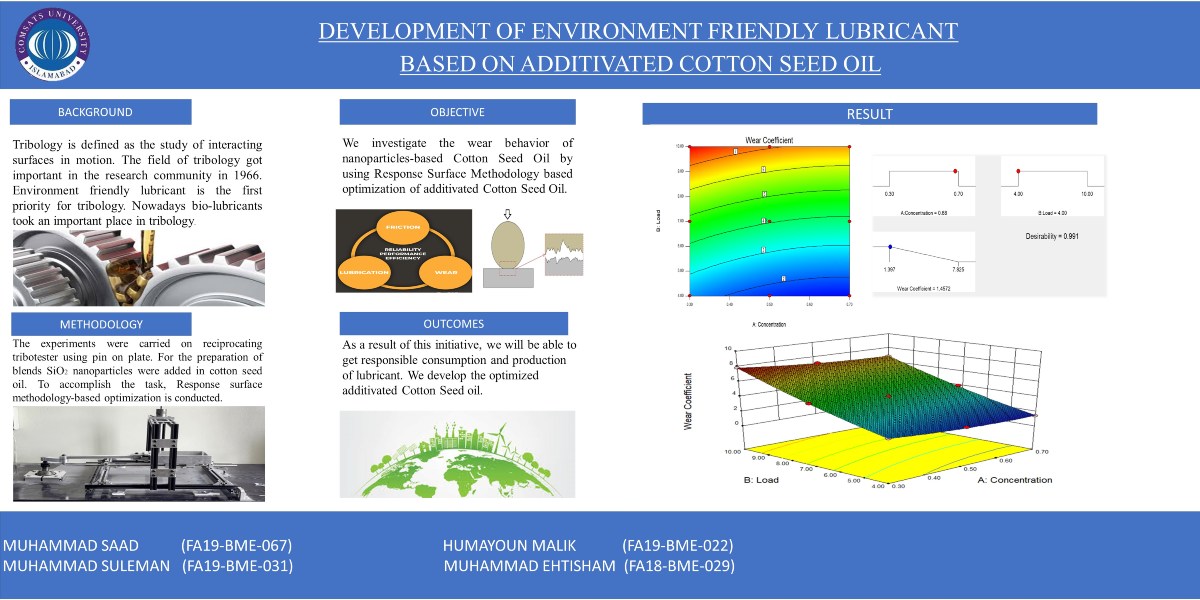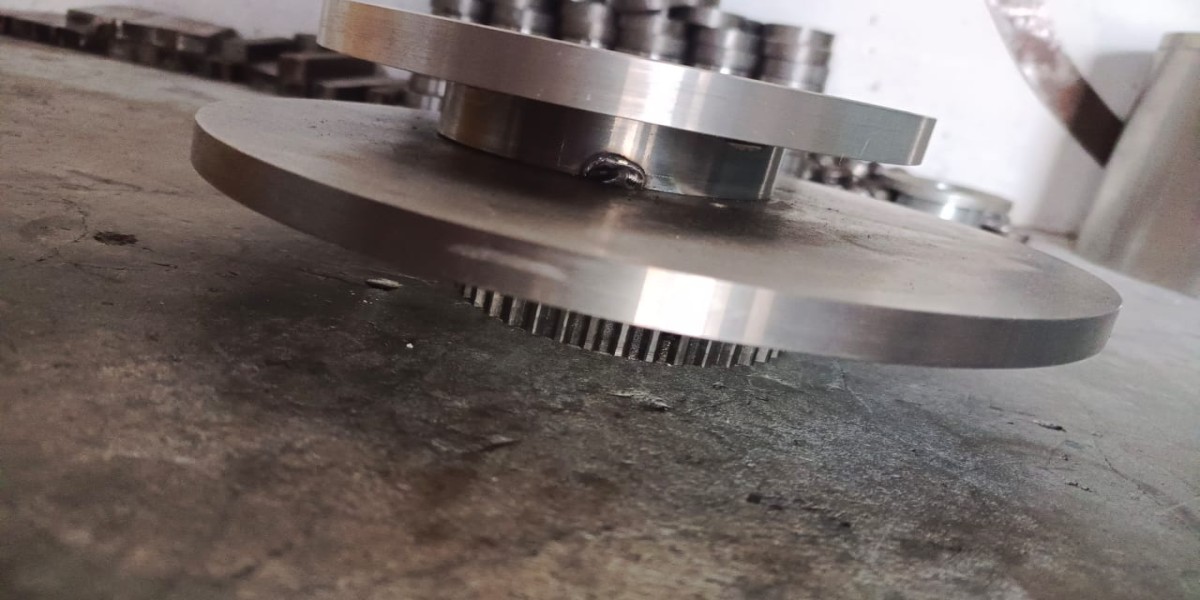The project focuses on exploring the potential of mustard oil as a bio-lubricant, considering the increasing importance of environmentally friendly lubricants in tribology. With concerns regarding the adverse effects of mineral oil on the environment and human health, researchers have shifted towards bio-based alternatives. The principles of tribology emphasize the use of environmentally friendly lubricants, and bio-lubricants have assumed a crucial role in this field. To enhance lubrication efficiency and reduce energy losses, researchers have been modifying the properties of lubricating fluids, including viscosity adjustments and the incorporation of additive nanoparticles.In this particular project, mustard oil was selected as a candidate bio-lubricant, and its performance was evaluated using a Vacuum distillation apparatus. To assess its tribological properties, a specially designed linear reciprocating tribotester conforming to ASTM G99 standards was utilized.
Objectives
"Our project has three main objectives:
Objective 1: To design and develop a linear reciprocating tribotester capable of simulating real-world tribological conditions.
Objective 2: To investigate the effects of nanoparticles on the tribological performance of bio lubricants. We will explore different types of optimal concentrations.
Objective 3: To evaluate the wear properties of nanoparticle-infused bio lubricants and compare them with conventional lubricants."
Socio-Economic Benefit
"Our project can bring several socio-economic benefits:
Benefit 1: Enhanced lubrication performance can reduce friction, leading to increased energy efficiency and decreased mechanical wear in industrial applications. This, in turn, can lower maintenance costs and prolong the lifespan of machinery.
Benefit 2: By utilizing bio lubricants and nanoparticles, we can promote sustainability by reducing the environmental impact associated with conventional lubricants. This aligns with global efforts towards greener and cleaner technologies.
Benefit 3: The knowledge gained from our research can contribute to the development of advanced lubrication systems, benefiting industries such as automotive, aerospace, and manufacturing. This can lead to improved product quality, increased competitiveness, and economic growth."
Methodologies
"To achieve our objectives, we have adopted the following methodology:
Step 1: Design and fabrication of a linear reciprocating tribotester. This involved developing a robust mechanical system capable of simulating realistic tribological conditions.
Step 2: Formulation of bio lubricant infused with different types and concentrations of nanoparticle. We carefully selected Sio2 nanoparticles known for their lubrication-enhancing properties
Step 3: Experimental testing using the tribotester to evaluate the tribological performance of the nanoparticle-infused bio lubricants. We conducted comprehensive tests to measure wear.
Step 4: comparing results of wear with neat bio lubricant.
Outcome
Identification of Mustard Oil as a Viable Bio-lubricant: The project successfully explored the potential of mustard oil as a bio-lubricant. Through the utilization of a Vacuum distillation apparatus and tribological testing methods, the study demonstrated that mustard oil holds promise as a suitable alternative to mineral oil in lubrication applications.
Performance Evaluation of Mustard Oil as a Bio-lubricant: The project utilized a conventional linear reciprocating tribotester designed according to ASTM G99 standards to evaluate the performance of mustard oil as a bio-lubricant. The obtained results showcased the effectiveness of mustard oil in reducing wear on mating surfaces
Enhancement of Tribological Properties through Nanoparticles: SiO2 nanoparticles were blended with the mustard oil bio-lubricant to improve its tribological properties. The results indicated that certain blends of nanoparticle-based bio-lubricants exhibited reduced wear compared to the pure bio-lubricant. Notably, the Nano-based mustard bio-lubricant demonstrated superior anti-wear performance compared to other oil samples tested.
Contribution to Efficient and Sustainable Lubrication Solutions: The project contributes to the ongoing pursuit of efficient and sustainable lubrication solutions. By highlighting the suitability of mustard oil as a bio-lubricant and the effectiveness of incorporating SiO2 nanoparticles, the research provides valuable insights for the development of environmentally friendly lubricants.
Overall, the project's outcomes demonstrate the potential of mustard oil as a viable alternative to mineral oil in lubrication applications. The integration of SiO2 nanoparticles further enhances its tribological properties, emphasizing its potential for efficient and sustainable lubrication solutions in various industrial and mechanical systems.






